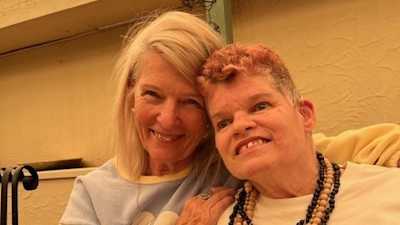It’s always tempting to pet a pooch passing by, but when it’s a guide dog or assistance dog on duty, there is certain etiquette to keep in mind.

Fluffy coats, floppy ears and wagging tails – man’s best friend certainly lucked out in the cute stakes, which is why many of us will innocently stop and pet someone else’s dog. However, when that passing pooch is a guide dog or assistance dog, there is certain etiquette we should all keep front of mind.
Much more than a furry snout, these dogs have a very important job – supporting their owner who lives with a disability (from vision impairment to autism) to live more independently. So, next time you see a working guide or assistance dog in action, be sure to follow these do’s and don’ts.
Give them space
First and foremost, when a guide or assistance dog is wearing a harness or coat, it is working. Like any other uniform, it signals to the community that it has an important job to do, so please give it space to do just that.
Don’t distract
Pats, whistles and treats are a no no when they’re on the job. No matter how well-intentioned. Any kind of distraction can undo months of comprehensive training to equip the dog with the skills needed to safely navigate and support their owner.
Engaging with a dog on duty can also cause anxiety for the person they support, as any distractions to the dog can impact how they do their job, and in turn, the person’s safety.
In other words, guide and assistance dogs need to focus 100% on the job at hand, so please don’t try to distract them.
Even if the dog is sitting or lying down, the same rules apply.
If it looks like you should help, ask first
If on the odd occasion it appears that the person being supported may need some extra help, be mindful and ask them before getting involved.
To do this, approach the person on the opposite side of their dog, then politely ask if they would like a hand. Never touch the person or the dog without their permission first. Listen and respect their response - if your help is needed, they will ask for it.
Spread the word
It’s important that we all work together to ensure guide and assistance dogs can do their job in the community, which you can help with by sharing this this doggy etiquette with others.
By sharing information, we make our community a safer and more inclusive place for everyone.


